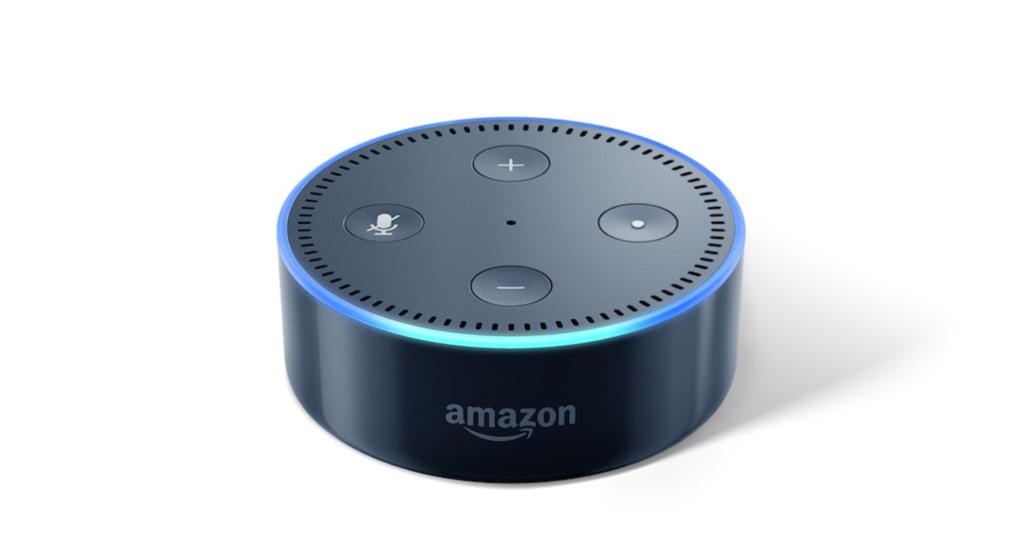Voice-activated technology is no longer a bleeding edge concept in home health care. For one California home health care provider, Amazon’s Alexa has been customized as a real solution to improve caregiver efficiencies and benefit patients.
Libertana Home Health, a Beverly Hills, California-based company with 3,000 clients in homes and senior living communities throughout the state, recently tested an experimental Alexa function with five of its senior clients and their caregivers. The function—or skill, as it’s called on Alexa—works by recognizing, analyzing and responding to basic voice commands and prompts.
Alexa is a personal assistant service on Amazon’s Echo devices that can play music, dim lights or report the weather on demand.
Using Libertana’s custom Alexa skill, seniors can verbally report medical data such as weight, blood pressure or blood sugar levels, listen to medication and exercise reminders, call for help from a caregiver, coordinate transportation and learn about their scheduled social and recreational activities.
The pilot, which is funded through several California waiver programs, has produced good results since it began eight weeks ago, Jonathan Istrin, executive director at Libertana, tells Home Health Care News.
“We like it. We’re very excited about it,” Istrin says. “It allows my staff to see more clients… and the clients are happier.”
Orbita, a two-and-a-half-year-old business based in Boston, worked with Libertana to design the Alexa skill. Orbita has previously worked with health care-focused companies, but Libertana is the first home health care agency to partner with the technology startup.
Though Amazon Echo and Alexa are Libertana’s tool of choice, Orbita’s tools are platform agnostic, meaning they could potentially be used on other voice-activated devices such as Google Home.
“Libertana is kind of an early adopter in this space,” Nathan Treloar, co-founder and president of Orbita, tells HHCN.
Many home health care companies also see the value in voice-enabled devices, but the idea may be far off for industry-wide use. Industry experts have also recently touted the technology’s usefulness in senior care settings. However, like Libertana, some in-home care providers are piloting voice-technology, including New Jersey-based Bayada Home Health Care.
Clinical and operational benefits
One big perk that the custom Alexa skill offers is that it’s able to cut down on loneliness, which is a problem for some seniors who age at home. Though it’s just a box, seniors come to see their Amazon Echo as a companion, Harvey Bogarat, vice president of business development for Libertana, tells HHCN.
For example, Alexa might offer kind words on a senior’s birthday, or tell them that they’re loved by their family.
“Loneliness is a huge factor in people’s longevity and mental health and physical wellbeing,” Bogarat says.
The effects of loneliness on seniors are well-documented. One recent study highlighted by the Washington Post suggests that seniors who say they’re lonely also reported 38.5% worse symptoms than their less lonely peers.
Another advantage lies in eliminating redundancy for caregivers and improving productivity. Before the Alexa skill, Libertana’s caregivers would have to manually record all of the information that Alexa does, then input that information into an electronic medical record (EMR).
With voice assistance software, half of that job is done automatically, meaning caregivers can spend more time getting to know their clients on a personal level.
“Instead of calling and doing a download with their respective clients, they can have more of a social relationship with them,” Bogarat says.
Soon, Libertana will unveil a feature that lets clients’ families see their daily medical reports remotely.
Not every desired feature is in the works, though. One goal for future development of the skill is to program Alexa to input notes into the EMR directly. Another feature on Libertana’s wish list is better two-way communication functionality, like what you’d find with a traditional personal emergency response system (PERS) device such as Life Alert.
Innovation on the way
Libertana, which sees a third of its clients in assisted living communities, acknowledges the potential for expansion in these type of settings. For example, nursing homes and other senior living communities could stand to benefit from voice-activated software.
“Imagine having them bedside in a nursing home,” Istrin muses. “This is an easy way to retrofit a building with that kind of technology.”
Orbita also sees tremendous potential for such applications in home health and home care. Though Treloar didn’t want to share much about his company’s future plans, he said more partnerships with senior-focused providers and agencies could be on the way—including home health care agencies.
“We’ve been a little shy going after the home care market because it’s so fragmented,” Treloar says. “But that’s about to change.”
Going forward, Libertana also hopes to expand the pilot to more clients, though how many more remains a question that will be determined soon.
Written by Tim Regan
(Photo of Amazon Echo Dot courtesy of Amazon.com)




